
Retired Professor, Faculty of Health Sciences, Walter Sisulu University, South Africa
-
Skill Levelexpert
-
Lectures1 Video
-
Enrolled 66 students enrolled
 ₹999
₹999
 ₹999
₹999
-
Skill Levelexpert
-
Lectures1 Video
-
Enrolled 66 students enrolled
-
Sample Certificate

Key concepts covered include:
An Overview of:
- An introduction to oxidative stress and reactive oxygen species (ROS)
- Oxidative stress as a result of normal metabolic processes in the human body
- Normal physiological handling of oxidative stress in the human body
- Metabolic derangements resulting in increased oxidative stress in diabetes
- oxidative stress leading to secondary complications common in diabetes affecting the quality of life of patients with diabetes
- Evaluation of oxidative stress parameters in patients with diabetes (What to look for in chemical pathological investigations)
What you'll learn
Diabetes mellitus is a group of metabolic disorders characterized by hyperglycemia with associated distortions in nutrient metabolism particularly of carbohydrate, protein, and lipid which results from the body’s inability to produce insulin or use insulin to its full potential It is a lifelong progressive metabolic disorder requiring appropriate treatment, control measures, and monitoring failing which can lead to severe disabling secondary complications increasing the disease burden in any country irrespective of the soundness of the health system. read more »»
Though diabetes does not differentiate between caste, creed, or political affiliation it sure follows a difference in its urban-rural distribution. In 2019 more people with diabetes live in urban (312.3 million) than in rural (152.6 million) areas. The prevalence in urban areas is 10.8% & rural 7.2%. The number of people with diabetes is expected to increase to 415.4million in 2030 and 538.8million in 2045 as a result of global urbanization. This equates to a prevalence of 11.9% in 2030 and 12.5% in 2045.
As a consequence of chronic hyperglycemia and insulin resistance, various long-term complications develop which include both micro and macrovascular complications. These include retinopathy with loss of vision, peripheral neuropathy with risk of amputation, autonomic neuropathy causing gastrointestinal, genitourinary, and cardiovascular symptoms and nephropathy causing renal failure. The development of disabling chronic complications of diabetes mellitus has been attributed to oxidative stress. Oxidative stress results due to chronic hyperglycemia, dyslipidemia, and elevated fatty acids in circulation.
Who should attend?
Physicians and health care specialists involved in the management of patients with type 2 diabetes
Instructor

Retired Professor, Faculty of Health Sciences, Walter Sisulu University, South Africa
4/5
George G completed her Ph.D. in 1980 from Central Food Technological Research Institute, Mysore. India. Currently, she is working as a Professor and Head of the Division of Medical Biochemistry, Faculty of Health Sciences at Walter Sisulu University, South Africa. Many Post-graduate students graduated under her supervision and she has several publications and presentations to her credit.
Instructor


Retired Professor, Faculty of Health Sciences, Walter Sisulu University, South Africa
4/5
George G completed her Ph.D. in 1980 from Central Food Technological Research Institute, Mysore. India. Currently, she is working as a Professor and Head of the Division of Medical Biochemistry, Faculty of Health Sciences at Walter Sisulu University, South Africa. Many Post-graduate students graduated under her supervision and she has several publications and presentations to her credit.


Retired Professor, Faculty of Health Sciences, Walter Sisulu University, South Africa
-
Skill Levelexpert
-
Lectures1 Video
-
Enrolled 66 students enrolled
 ₹999
₹999
 ₹999
₹999
Instructor


Retired Professor, Faculty of Health Sciences, Walter Sisulu University, South Africa
4/5
George G completed her Ph.D. in 1980 from Central Food Technological Research Institute, Mysore. India. Currently, she is working as a Professor and Head of the Division of Medical Biochemistry, Faculty of Health Sciences at Walter Sisulu University, South Africa. Many Post-graduate students graduated under her supervision and she has several publications and presentations to her credit.
Certificate
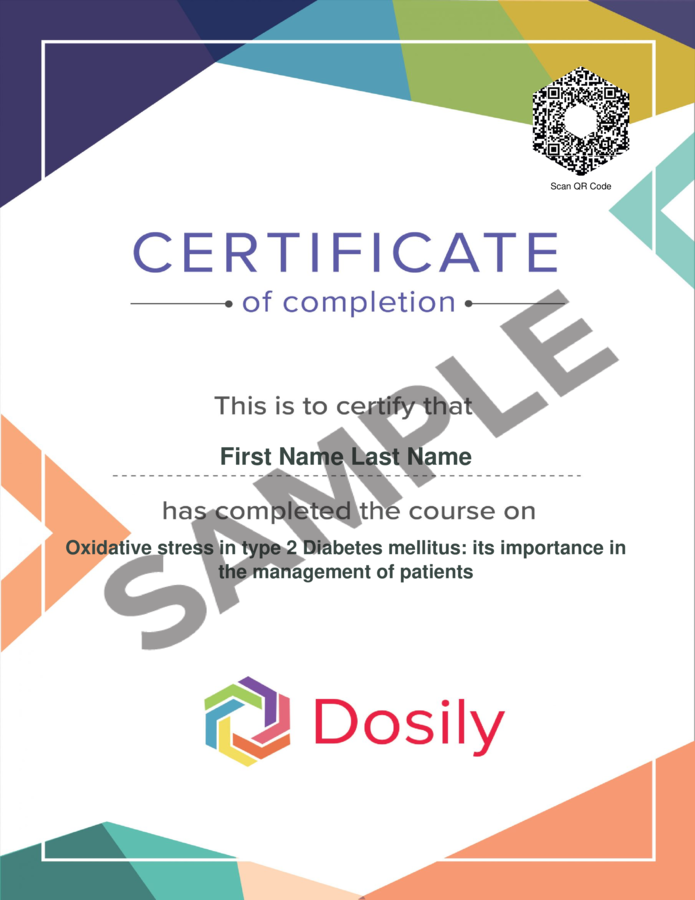
Oxidative stress in type 2 Diabetes mellitus: its importance in the management of patients
 66 Users Enrolled
66 Users Enrolled

Retired Professor, Faculty of Health Sciences, Walter Sisulu University, South Africa
 Last Updated 04/2021
Last Updated 04/2021
-
Sample Certificate
-
Lectures1 Video
-
Enrolled 66 Students enrolled
Other Top Rated Courses by Prof. Grace George

read more
INR 999
https://storage.googleapis.com/master-transformer-9446/DOSILY/Kite%20to%20Dosily%203/Oxidative%20Stress%20in%20Diabetic%20Retinopathy/Oxidative%20Stress%20in%20Diabetic%20Retinopathy_Explainer.mp4
Oxidative Stress in Diabetic Retinopathy
 7K
7K

₹ 999
Oxidative Stress in Diabetic Retinopathy
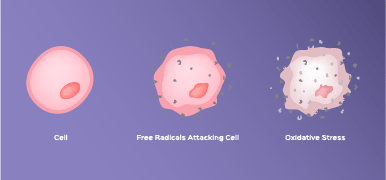
read more
https://storage.googleapis.com/master-transformer-9446/DOSILY/Kite%20to%20Dosily%203/Modulation%20of%20Oxidative%20Stress%20in%20Type%202%20Diabetes%20Mellitus%3A%20A%20Strategy%20in%20the%20Management%20of%20Patients/Modulation%20of%20oxidative%20stress%20in%20type%202%20Diabetes%20mellitus%20a%20strategy%20in%20the%20management%20of%20patients_Explainer.mp4
Modulation of Oxidative Stress in Type 2 Diabetes Mellitus: A Strategy in the Management of Patients
 6.5K
6.5K

free
Modulation of Oxidative Stress in Type 2 Diabetes Mellitus: A Strategy in the Management of Patients
Related Courses
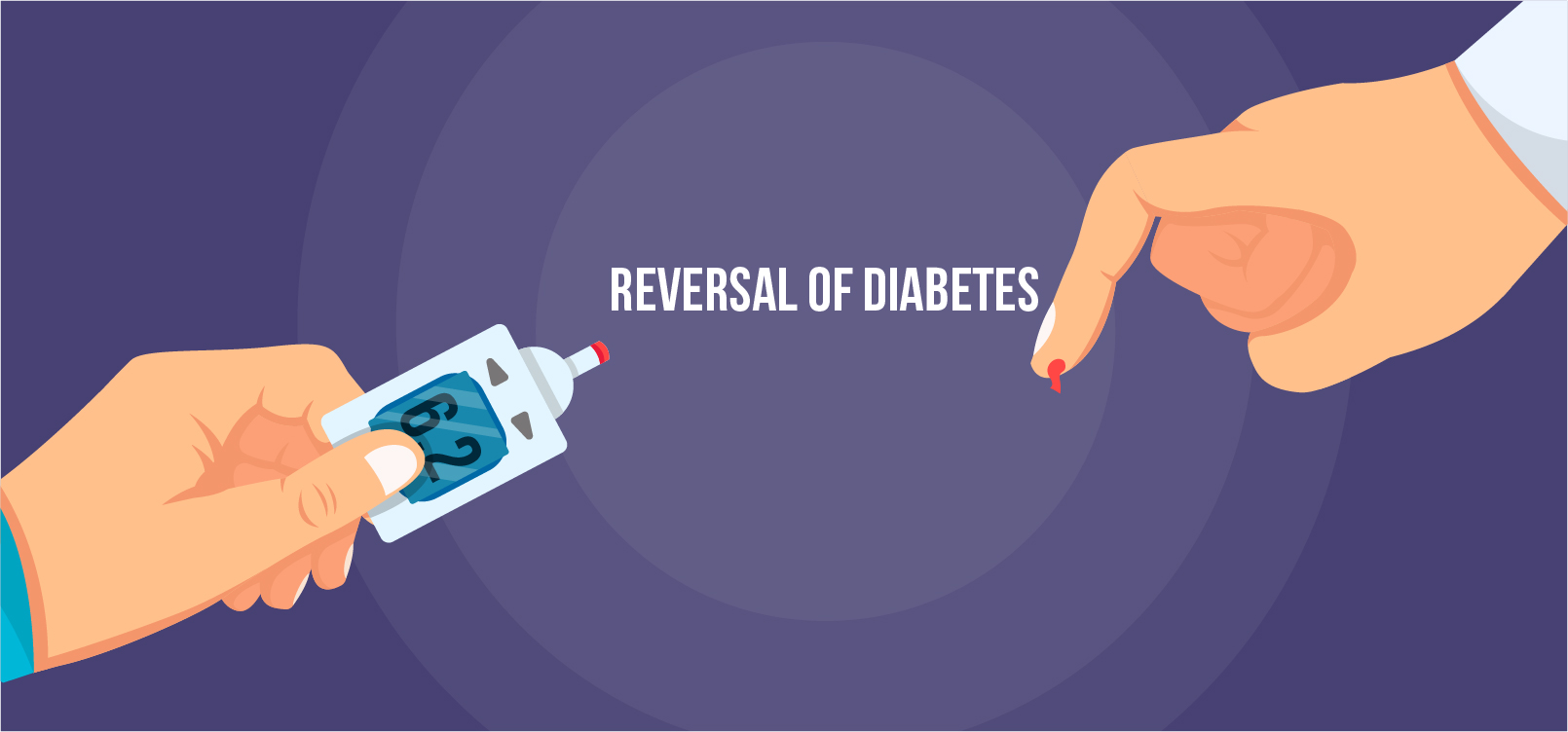
read more
INR 999
https://storage.googleapis.com/master-transformer-9446/DOSILY/Kite%20to%20Dosily%203/Reversal%20of%20Diabetes/Reversal%20of%20Diabetes_Explainer.mp4
Reversal of Diabetes
 3.2K
3.2K

₹ 999
Reversal of Diabetes

read more
INR 999
https://storage.googleapis.com/master-transformer-9446/DOSILY/Kite%20to%20Dosily%203/Management%20of%20GDM/Management%20of%20GDM_Explainer.mp4
Management of GDM
 10K
10K

₹ 999
Management of GDM

read more
INR 499
https://storage.googleapis.com/master-transformer-9446/DOSILY/Kite%20to%20Dosily%203/Insulinization%3A%20The%20Process%20and%20Evolution/Insulinization_%20The%20Process%20and%20Evolution_Explainer.mp4
Insulinization: The Process and Evolution
 7.6K
7.6K

₹ 499
Insulinization: The Process and Evolution

read more
INR 799
https://storage.googleapis.com/master-transformer-9446/DOSILY/Kite%20to%20Dosily%203/Perioperative%20Management%20of%20Type-2%20DM/Perioperative%20Management%20of%20type%20-2%20DM_Explainer.mp4
Perioperative Management of Type-2 DM
 7.4K
7.4K

₹ 799
Perioperative Management of Type-2 DM

read more
INR 999
https://storage.googleapis.com/master-transformer-9446/DOSILY/Kite%20to%20Dosily%203/Oxidative%20Stress%20in%20Diabetic%20Retinopathy/Oxidative%20Stress%20in%20Diabetic%20Retinopathy_Explainer.mp4
Oxidative Stress in Diabetic Retinopathy
 7K
7K

₹ 999
Oxidative Stress in Diabetic Retinopathy

read more
INR 799
https://storage.googleapis.com/master-transformer-9446/DOSILY/Kite%20to%20Dosily%203/Diabetes%20in%20Special%20Populations%20Pregnancy%20and%20Elderly/Diabetes%20in%20Special%20Populations%20Pregnancy%20and%20Elderly_Explainer.mp4
Diabetes in Special Populations Pregnancy and Elderly
 6.8K
6.8K

₹ 799
Diabetes in Special Populations Pregnancy and Elderly
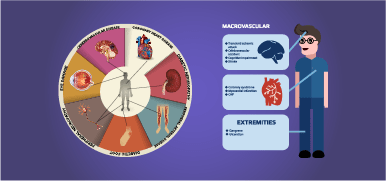
read more
INR 799
https://storage.googleapis.com/master-transformer-9446/DOSILY/Kite%20to%20Dosily%203/Diabetes%20Chronic%20Complications%20-%20Macrovascular%20Complications%20and%20Guidelines/Diabetes%20Chronic%20Complications-Macrovascular%20Complications%20and%20Guidelines_Explainer.mp4
Diabetes Chronic Complications – Macrovascular Complications and Guidelines
 6.7K
6.7K

₹ 799
Diabetes Chronic Complications – Macrovascular Complications and Guidelines

read more
INR 799
https://storage.googleapis.com/master-transformer-9446/DOSILY/Kite%20to%20Dosily%203/Management%20of%20Diabetes%20%E2%80%93%20GLP1%20Agonist%2C%20Insulin%20Therapy/Mangement%20of%20Diabetes%20-%20GLP1%20Agonist%2C%20Insulin%20Therapy_Explainer.mp4
Management of Diabetes – GLP1 Agonist, Insulin Therapy
 6.5K
6.5K

₹ 799
Management of Diabetes – GLP1 Agonist, Insulin Therapy

read more
INR 799
https://storage.googleapis.com/master-transformer-9446/DOSILY/Kite%20to%20Dosily%203/Insulin%20Masterclass/Insulin%20Masterclass_Explainer.mp4
Insulin Masterclass
 6.7K
6.7K

₹ 799
Insulin Masterclass

read more
https://storage.googleapis.com/master-transformer-9446/DOSILY/Kite%20to%20Dosily%203/MNT%20in%20Type%202%20Diabetes/MNT%20in%20type%202%20Diabetes%20Mellitus_Explainer.mp4
MNT in Type 2 Diabetes
 6.6K
6.6K

free
MNT in Type 2 Diabetes

read more
https://storage.googleapis.com/master-transformer-9446/DOSILY/Kite%20to%20Dosily%203/NIPHS-%20Nesidioblastosis%20and%20its%20Management/NIPHS-%20Nesidioblastosis%20and%20its%20Management_Explainer.mp4
NIPHS – Nesidioblastosis and its Management
 5K
5K

free
NIPHS – Nesidioblastosis and its Management
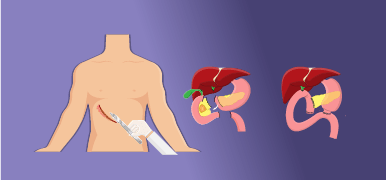
read more
https://storage.googleapis.com/master-transformer-9446/DOSILY/Kite%20to%20Dosily%203/Management%20of%20Post%20Whipples/Management%20of%20Post%20Whipples_Explainer.mp4
Management of Post Whipples
 5.5K
5.5K

free
Management of Post Whipples
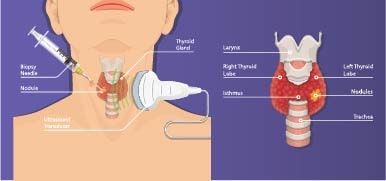
read more
INR 499
https://storage.googleapis.com/master-transformer-9446/DOSILY/Kite%20to%20Dosily%203/Thyroid%20Disorders%20and%20Its%20Management/Thyroid%20disorders%20and%20its%20Management_2_Explainer.mp4
Thyroid Disorders and Its Management
 6.3K
6.3K

₹ 499
Thyroid Disorders and Its Management

read more
INR 499
https://storage.googleapis.com/master-transformer-9446/DOSILY/Kite%20to%20Dosily%203/Thyroid%20Disorders%20-%20An%20Introduction/Thyroid%20disorders-%20An%20Introduction_Explainer.mp4
Thyroid Disorders – An Introduction
 5.6K
5.6K

₹ 499
Thyroid Disorders – An Introduction

read more
https://storage.googleapis.com/master-transformer-9446/DOSILY/Kite%20to%20Dosily%203/Ketogenic%20Diet%20in%20Type-2%20Diabetes/Ketogenic%20Diet%20in%20Type-2%20Diabetes_Explainer.mp4
Ketogenic Diet in Type-2 Diabetes
 6.1K
6.1K

free
Ketogenic Diet in Type-2 Diabetes

read more
https://storage.googleapis.com/master-transformer-9446/DOSILY/Kite%20to%20Dosily%203/Diabetes%20-%20Acute%20Complications/Diabetes%20-%20Complications%20Acute%20and%20Chronic%20(Microvascular)_Explainer.mp4
Diabetes – Chronic Complications (Microvascular)
 6.5K
6.5K

free
Diabetes – Chronic Complications (Microvascular)

read more
https://storage.googleapis.com/master-transformer-9446/DOSILY/Kite%20to%20Dosily%203/Diabetes%20-%20Acute%20Complications/Diabetes%20-%20Complications%20Acute%20and%20Chronic%20(Microvascular)_Explainer.mp4
Diabetes – Acute Complications
 6.1K
6.1K

free
Diabetes – Acute Complications

read more
https://storage.googleapis.com/master-transformer-9446/DOSILY/Kite%20to%20Dosily%203/Diabetes%3A%20Screening%2C%20Diagnosis%20Classification%20and%20Evaluation/Diabetes%20Screening%20Diagnosis%20Calassification%20and%20Evaluation_%20Explainer.mp4
Diabetes: Screening, Diagnosis Classification and Evaluation
 7K
7K

free
Diabetes: Screening, Diagnosis Classification and Evaluation


read more
INR 799
https://storage.googleapis.com/master-transformer-9446/DOSILY/IP%20Courses/Insulin%20Therapy%20and%20Glucose%20Management%20in%20Hospitalized%20Patients/Insulin%20therapy%20and%20glucose%20management%20in%20hospitalized%20patients%20EXPL.mp4
Insulin Therapy and Glucose Management in Hospitalized Patients
 11.9K
11.9K

₹ 799
Insulin Therapy and Glucose Management in Hospitalized Patients

read more
https://storage.googleapis.com/master-transformer-9446/DOSILY/Kite%20to%20Dosily%203/Hypothyroidism%20and%20Its%20Effects%20on%20the%20Heart/Hypothyroidism%20and%20its%20Effects%20on%20the%20Heart_Explainer.mp4
Hypothyroidism and Its Effects on the Heart
 6.6K
6.6K

free
Hypothyroidism and Its Effects on the Heart

read more
https://storage.googleapis.com/master-transformer-9446/DOSILY/Kite%20to%20Dosily%203/Modulation%20of%20Oxidative%20Stress%20in%20Type%202%20Diabetes%20Mellitus%3A%20A%20Strategy%20in%20the%20Management%20of%20Patients/Modulation%20of%20oxidative%20stress%20in%20type%202%20Diabetes%20mellitus%20a%20strategy%20in%20the%20management%20of%20patients_Explainer.mp4
Modulation of Oxidative Stress in Type 2 Diabetes Mellitus: A Strategy in the Management of Patients
 6.5K
6.5K

free
Modulation of Oxidative Stress in Type 2 Diabetes Mellitus: A Strategy in the Management of Patients

read more
INR 499
https://storage.googleapis.com/master-transformer-9446/DOSILY/Kite%20to%20Dosily%203/Diabetes%20and%20its%20Pathophysiology/Diabetes%20and%20its%20Pathophysiology_Explainer.mp4
Diabetes and its Pathophysiology
 5.4K
5.4K

₹ 499
Diabetes and its Pathophysiology

read more
https://storage.googleapis.com/master-transformer-9446/DOSILY/Kite%20to%20Dosily%203/Diabetes%20and%20Principles%20of%20Diet%20Planning/Diabetes%20and%20Principles%20of%20Diet%20Planning_Explainer.mp4
Diabetes and Principles of Diet Planning
 5.5K
5.5K

free
Diabetes and Principles of Diet Planning

read more
https://storage.googleapis.com/master-transformer-9446/DOSILY/Kite%20to%20Dosily%203/Diabetes%3A%20Nutrition%20Therapy%20Recommendations%20-%20ADA%20Guidelines/Diabetes%20Nutrition%20Therapy%20Recommendations_Explainer.mp4
Diabetes: Nutrition Therapy Recommendations – ADA Guidelines
 614K
614K

free
Diabetes: Nutrition Therapy Recommendations – ADA Guidelines
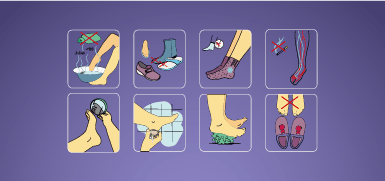
read more
INR 799
https://storage.googleapis.com/master-transformer-9446/DOSILY/Kite%20to%20Dosily%203/Wound%20Dressings%20for%20Diabetic%20Foot%20and%20Types%20of%20Footwear/Wound%20Dressings%20for%20Diabetic%20Foot%20and%20Types%20of%20Footwear_Explainer.mp4
Wound Dressings for Diabetic Foot and Types of Footwear
 5.4K
5.4K

₹ 799
Wound Dressings for Diabetic Foot and Types of Footwear

read more
INR 499
https://storage.googleapis.com/master-transformer-9446/DOSILY/Kite%20to%20Dosily%203/Risk%20Stratification%20of%20Diabetic%20Foot/Risk%20Stratification%20of%20Diabetic%20foot_Explainer.mp4
Risk Stratification of Diabetic Foot
 5.1K
5.1K

₹ 499
Risk Stratification of Diabetic Foot

read more
INR 799
https://storage.googleapis.com/master-transformer-9446/DOSILY/Kite%20to%20Dosily%203/Amputation%20of%20Diabetic%20Foot/Amputation%20of%20Diabetic%20Foot_Explainer.mp4
Amputation of Diabetic Foot
 5.3K
5.3K

₹ 799
Amputation of Diabetic Foot

read more
INR 799
https://storage.googleapis.com/master-transformer-9446/DOSILY/Kite%20to%20Dosily%203/Diabetic%20Foot%20-%20Offloading/Diabetic%20Foot%20-%20Offloading_Explainer.mp4
Diabetic Foot – Offloading
 5.1K
5.1K

₹ 799
Diabetic Foot – Offloading

read more
INR 799
https://storage.googleapis.com/master-transformer-9446/DOSILY/Kite%20to%20Dosily%203/Diabetic%20Foot-%20Classification%20and%20Examination/Diabetic%20Foot-%20Classification%20and%20Examination_Explainer.mp4
Diabetic Foot – Classification and Examination
 5.2K
5.2K

₹ 799
Diabetic Foot – Classification and Examination

read more
https://storage.googleapis.com/master-transformer-9446/DOSILY/Kite%20to%20Dosily%203/Geriatric%20endocrinology_Batch_2/Geriatric%20endocrinology.mp4
Geriatric Endocrinology
 17.1K
17.1K

free
Geriatric Endocrinology

read more
INR 799
https://storage.googleapis.com/master-transformer-9446/DOSILY/IP%20Courses/Why%20are%20Diabetic%20Patients%20Still%20having%20Hyperglycemia/Why%20are%20Diabetic%20Patients_Explainer.mp4
Persistence of hyperglycemia in diabetic patients despite diet regulation and medication
 5.7K
5.7K

₹ 799
Persistence of hyperglycemia in diabetic patients despite diet regulation and medication

read more
INR 799
https://storage.googleapis.com/master-transformer-9446/DOSILY/IP%20Courses/Management%20of%20Diabetes%3A%20Non%20pharmacological%20%20and%20Pharmacological/Management%20of%20diabetes_Dr%20Vimal%20Pahuja%20_Explainer.mp4
Management of Diabetes: Non pharmacological and Pharmacological
 12.2K
12.2K

₹ 799
Management of Diabetes: Non pharmacological and Pharmacological

read more
INR 799
https://storage.googleapis.com/master-transformer-9446/DOSILY/IP%20Courses/Managing%20Subclinical%20-%20Hypothyroidism/Managing%20Clinical%20Hypothyroidism_Dr%20Sanjay%20Khare_Explainer.mp4
Managing Subclinical Hypothyroidism
 6.4K
6.4K

₹ 799
Managing Subclinical Hypothyroidism

read more
INR 799
https://storage.googleapis.com/master-transformer-9446/DOSILY/Kite%20To%20Dosily-2/Polycystic%20Ovary%20Syndrome/Polycystic%20Ovary%20Disease%20(2).mp4
Polycystic Ovary Syndrome
 7K
7K

₹ 799
Polycystic Ovary Syndrome

read more
INR 499
https://storage.googleapis.com/master-transformer-9446/DOSILY/Kite%20To%20Dosily-2/Endocrine%20system%20and%20its%20importance/Endocrine%20system%20and%20its%20importance-EXPL.mp4
Endocrine System and Its Importance
 2.1K
2.1K

₹ 499
Endocrine System and Its Importance

read more
INR 999
https://storage.googleapis.com/master-transformer-9446/DOSILY/Kite%20To%20Dosily/Approach%20to%20Severe%20Acute%20Pancreatitis/Acute_pancreatitis%20Explainer.mp4
Approach to Severe Acute Pancreatitis
 1.9K
1.9K

₹ 999
Approach to Severe Acute Pancreatitis

read more
INR 799
https://storage.googleapis.com/master-transformer-9446/DOSILY/Kite%20To%20Dosily/Thyroid%20physiology/Thyroid%20Physiology.mp4
Thyroid Physiology
 1.9K
1.9K

₹ 799
Thyroid Physiology

read more
INR 799
https://storage.googleapis.com/master-transformer-9446/DOSILY/Kite%20To%20Dosily/Diabetes/Diabetes%20Mellitus_V1.mp4
Important Concepts of Diabetes and Its Management
 6K
6K

₹ 799
Important Concepts of Diabetes and Its Management

read more
INR 799
https://storage.googleapis.com/master-transformer-9446/DOSILY/IP%20Courses/Improving%20Clinical%20outcomes%20in%20Diabetes%20%3A%20Role%20of%20Medical%20Nutrition%20Therapy-Part%202/Improving%20Clinical%20Outcomes%20in%20Diabetes_Role%20of%20Medical%20Nutrition%20Therapy%20%20Part%202_EXP.mp4
Improving Clinical outcomes in Diabetes : Role of Medical Nutrition Therapy-Part 2
 6.1K
6.1K

₹ 799
Improving Clinical outcomes in Diabetes : Role of Medical Nutrition Therapy-Part 2

read more
INR 799
https://storage.googleapis.com/master-transformer-9446/DOSILY/IP%20Courses/Improving%20Clinical%20outcomes%20in%20Diabetes%20%3A%20Role%20of%20Medical%20Nutrition%20Therapy/Improving%20Clinical%20outcomesin%20Diabetes%20%20Role%20of%20Medical%20Nutrition%20Therapy_EXP.mp4
Improving Clinical Outcomes in Diabetes : Role of Medical Nutrition Therapy – Part 1
 5.7K
5.7K

₹ 799
Improving Clinical Outcomes in Diabetes : Role of Medical Nutrition Therapy – Part 1

read more
INR 499
https://storage.googleapis.com/master-transformer-9446/DOSILY/IP%20Courses/Pathophysiology%20of%20Diabetes%20Mellitus/Pathophysiology%20of%20Diabetes%20Mellitus_Introduction.mp4
Pathophysiology of Diabetes Mellitus
 7.6K
7.6K

₹ 499
Pathophysiology of Diabetes Mellitus

read more
https://storage.googleapis.com/master-transformer-9446/DOSILY/IP%20Courses/Management%20of%20Gestational%20Diabetes/Gestational%20Diabetes%20Explainer.mp4
Management of Gestational Diabetes
 15.1K
15.1K

free
Management of Gestational Diabetes
Our alumni and partners
- Contact Us
- [email protected]
- Dosily 8, The Green Ste A, Dover, Kent, Delaware 19901.
- Powered by Medvarsity
Copyright 2021 Dosily.com




























































